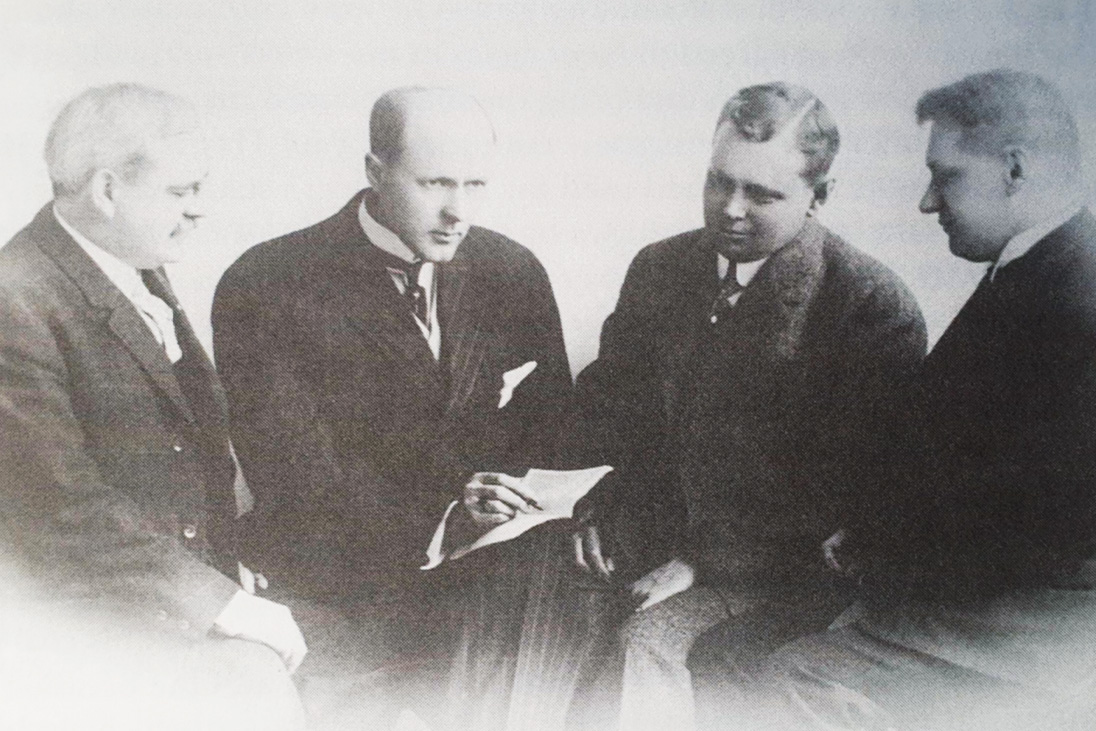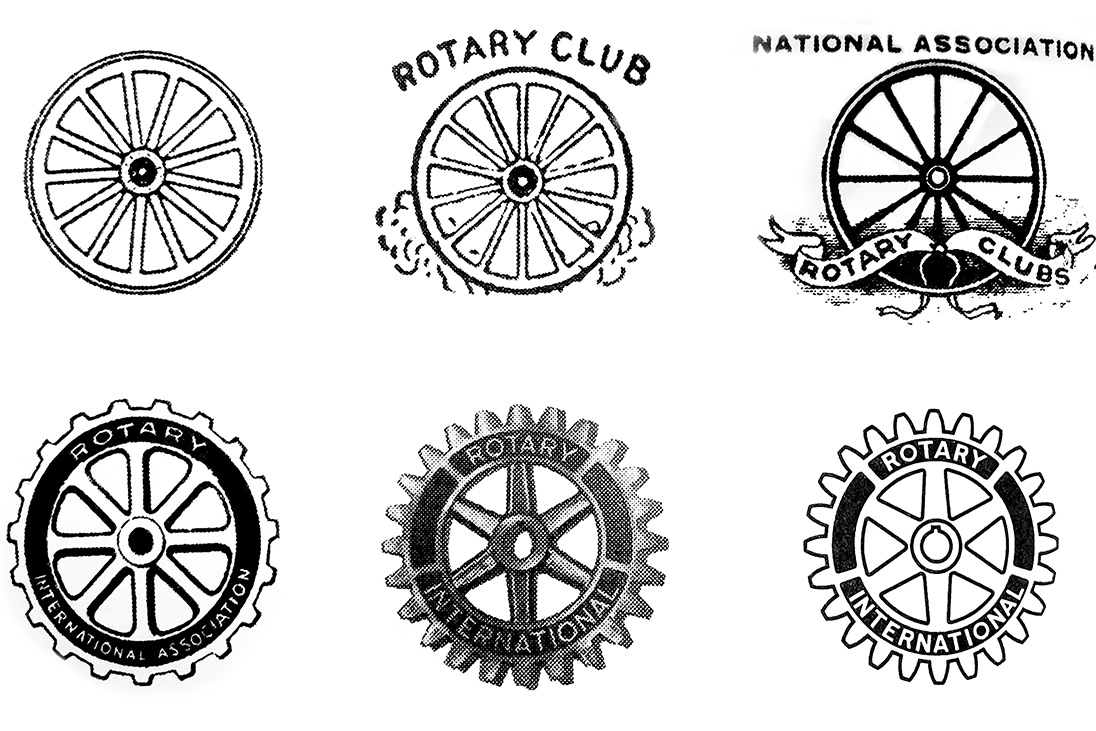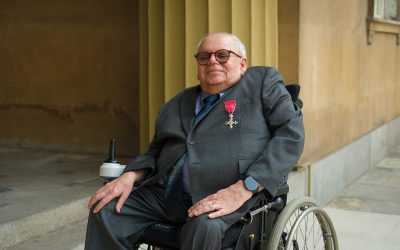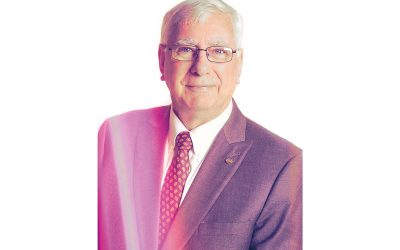The years directly after World War One marked a time of rapid expansion for Rotary, both in Great Britain and Ireland and across the globe.
Rotary had struck these shores from America in 1912 with the Rotary Club of London chartering – the first Rotary club in Europe.
Rotary grew to have eight clubs in Glasgow (1913), Belfast (1913), Dublin (1913), Edinburgh (1913), Manchester (1913), Liverpool (1913) and Birmingham (1914) leading to the creation of the British Association of Rotary Clubs.
Listen to this article
However, the year 1922 proved to be a pivotal year of progress for Rotary in Great Britain and Ireland.
It was decided at the 1922 Rotary Convention in Los Angeles that national or territorial units could operate as administrative units of Rotary International, allowing the clubs of Great Britain and Ireland to officially unite under the name Rotary International in Great Britain and Ireland.
This was one year after Rotary Great Britain and Ireland hosted the Rotary Convention for the first time in Edinburgh, an event which received the recognition of the British Government and King George V.
At the 1922 Annual Conference of Rotary Clubs of Great Britain and Ireland in Brighton, there was further good news to be heard about Rotary’s growth in the Isles.


Founders of the first Rotary club from left to right: Silvester Schiele, Paul P. Harris, Gustavus Loehr, Hiram Shorey.
According to the 1922 edition of the national magazine, The Rotary Wheel, in his address to the conference, Rotary GB&I President William A.
McConnell OBE reported: “Eleven months ago the Association consisted of 42 member clubs, following upon a total of 28 when we met at Harrogate.
“Today we have in actual membership 75 clubs, while, in addition, there are 18 clubs fully established whose affiliation will shortly take place, and 8 clubs in formation, making a complete total of 101 clubs in Great Britain and Ireland. The enrolled membership of our clubs is approximately 6,000.”
Throughout this issue of Rotary Wheel, which is the Rotary’s oldest region magazine, there are excited reports of new clubs being formed in Colchester, Bristol, Canterbury and Barnsley amongst dozens of others.
When looking for the driving force behind this rapid extension of Rotary’s reach in the 1920s, there are a number of reasons.
In the Annual Report of the Executive Council 1921-1922, it explains a primary reason for the high increase in Rotary clubs during this time was that “the Headquarters of the Association have been placed upon a permanent footing in its own offices.
“The efforts of the District Councils, to which has been delegated the preliminary work of forming new clubs, have received from the Headquarters active support, which has enabled them nearly to double the number of clubs in this county.”
The desired result can be achieved only by putting aside national differences and cultivating a charitable disposition towards civilizations essentially different from our own”
There was clearly a focus on establishing grounds for international collaboration within Rotary following World War One. It was an opportunity for Rotary clubs to help society rebuild after the horrors of the conflict in Europe and for many of those who fought to become part of the Rotary movement.
In a message read out at the 1922 Los Angeles Convention, Rotary Founder Paul Harris expressed his desire for Rotary’s impact to be felt around the world, saying: “Let us make the utmost of our opportunities to cultivate personal friendship with men of other nations.
“The desired result can be achieved only by putting aside national differences and cultivating a charitable disposition towards civilizations essentially different from our own.”
This sentiment was echoed back in Britain at the Brighton Annual Rotary Conference 1922 where Rotarian W. T. Elliot questioned why British Rotary had not reached out to nations who weren’t on our side during World War One.
He said: “It ought to be one of the immediate objects of Rotary to get moving in ex-enemy countries, and it ought not to be beyond the moral power of Rotarians to rise to the height of their opportunity in this respect.”
Moreover though, from British and Irish Rotary point of view, this surge in clubs forming could be framed as communities banding together in response to difficult times.
In the aftermath of World War One, Britain lost its place as the world’s leading economic power as unemployment and national debt drastically increased, leading to a great amount of tension amongst the working population and multiple strikes across the country.
Referencing the current economic climate in his address at the 1922 conference, William A. McConnell said: “Rotary and its membership provide increased opportunity for service, and it is in service we shall require to demonstrate that our ideals are right.


The history of the Rotary logo.
“We hear much of taxation interfering with business, but is relief in taxation as likely to bring prosperity as the goodwill to serve?
“Peace and prosperity cannot return to a distracted world until all classes of the community unite in a true spirit of constructive co-operation. The war was won by Unity, Sacrifice and Service.”
He added: “The mission of Rotary is world-wide, and it knows no barriers of race, creed or colour.
“Wherever there is a community of civilized men, there may be a Rotary club uniting, in the spirit of service, all sorts and conditions of men.”
These statements from Rotary President McConnell already paint Rotary as a force which could unite all communities in the face of great hardship.
It would, therefore, be appropriate to draw comparisons between this period of Rotary’s history and Rotary’s more recent activity in response to the Covid pandemic and the conflict in Ukraine where Rotary clubs have been inspiring communities to come together for donations and events.
Through all the talk about Rotary’s relevance in the modern world, it is evident the organisation’s impact to unite people across the world with acts of service has always persisted.
The question is whether Rotary in Great Britain and Ireland can replicate its growth a century ago in the face of adversity, by promoting itself as a focal point for community-minded citizens who want to take part in an act of service.


























































